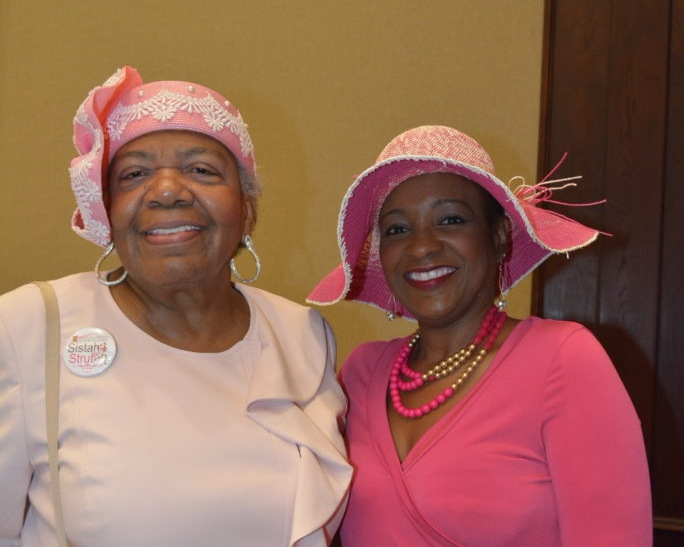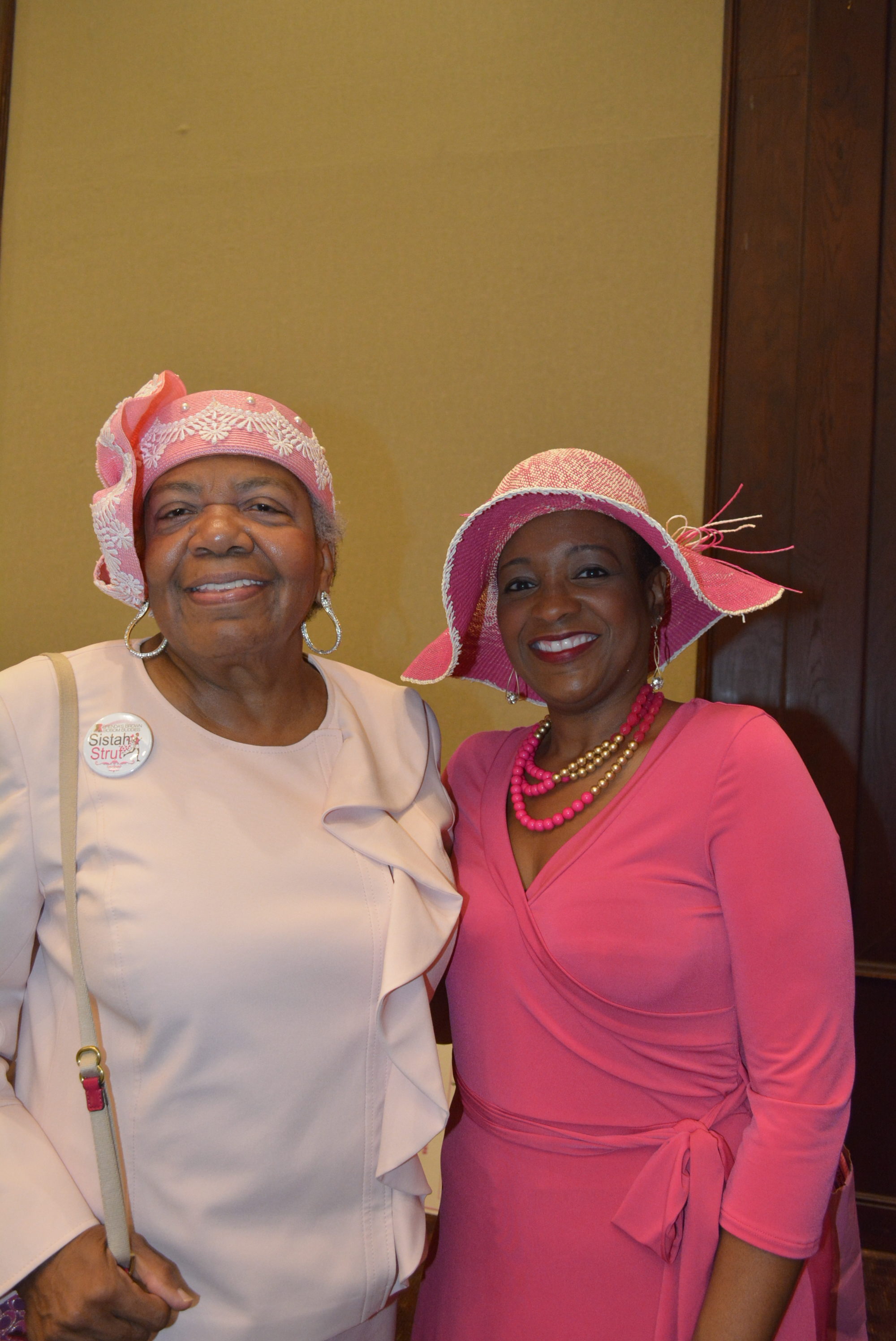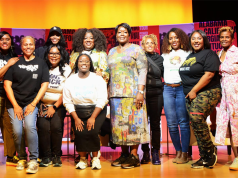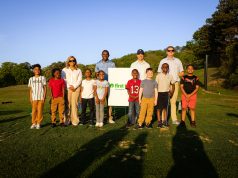By Ariel Worthy
The Birmingham Times

Lynneice Washington remembers the time as one filled with challenges in her life. She was campaigning for a district judge seat in the Bessemer Division. Her husband was preparing for a trip to Iraq to work on a contract for the Department of Defense. And she discovered that she had breast cancer.
“I had come from a speaking engagement. I was sitting on my bed, still wearing my suit—I was tired. I was watching an infomercial on television, which said women should do self-checks for breast cancer,” she recalled. “I just did it on a whim, and I found a knot on my breast under my armpit area. I said, ‘Hmm, OK. I’ll let my doctor know.’ I didn’t think anything of it, I was just going forward.”
The year was 2010.
Washington didn’t win the district judge seat that year, but she moved forward. In 2016, she was elected district attorney for the Bessemer Cutoff, the first African-American woman elected district attorney in Alabama. She also has been a breast cancer victor since her diagnosis, and she now helps others to cope.
“As women, we are nurturers, but we nurture other people,” Washington said. “We’re always the last person we take care of. We put ourselves at the bottom of the totem pole and consider everyone else.”
Early Detection
Washington, 49, was born and raised in Birmingham and is a graduate of A.H. Parker High School, Auburn University, and Miles Law School. She stresses the importance of breast cancer education and early detection.
“If you detect breast cancer early, you can prevent it from spreading, and it can be controlled,” she said. “Sometimes, we wait for a very long time and don’t get examinations. We don’t care for ourselves. We care for others, and that could turn out not so well for us, so education is very important.”
It’s important to know that there are different forms of cancer and certain things can feed off cancer, Washington said.
“I had estrogen-based cancer, so as I age I have to be careful about taking hormonal-type medicine,” she said. “It’s always good to be educated so you know how to take care of yourself and what you should do if you think you have cancer. It is important to always get annual checkups just to be safe.”
Hectic Time
When Washington was dealing with her diagnosis seven years ago, it was a hectic time. Her husband was employed with the Jefferson County Sheriff’s Office, which was laying off deputies.
“After much strong discussion, during which he and I did not agree, my husband wanted to take on a Department of Defense contract and work in Iraq, taking personal leave from the Sheriff’s Department,” she said. “I wasn’t crazy about it because things were very volatile overseas at that time, but I gave in. When I discovered the knot in my breast, he was already scheduled to leave for Iraq.”
Washington called her doctor, who scheduled an ultrasound to look at the knot she’d found during her self-exam, and was diagnosed with breast cancer a couple of days after her husband left.
“For a while I did not let him know,” she said. “I had a meeting with my campaign staff and talked to my family and people I felt like I could trust because it wasn’t something that I wanted to get out. It had to resonate with me first.”
Washington said she received support from several people, including her niece Jasmine, who she calls her angel.
“She was the one mostly taking me to my chemotherapy treatments,” Washington said. “She would sit there with me, and it’s ironic because she now runs a clinic in Cooksville, Tenn.—and it is a cancer clinic.”
Support groups were very caring, as well. Washington discovered the group Look Good, Feel Better, which provides information and teaches women how to wear scarves and makeup. She also is a member of Birmingham-based Brenda’s Brown Bosom Buddies and served as emcee for the group’s annual Pink Hat, Pink Tie event in June.
Washington speaks to youth groups and churches, and is part of Professional Individuals Nurturing Knowledge (PINK), a mentoring organization. In addition, she is a member of the Bessemer Rotary Club, the Alabama Lawyers Association, the Magic City Bar Association, and the Bessemer Bar Association.
“At one point, I was part of so many organizations that I had to kind of tone it down because I was wearing myself thin.”
But, she added, “To whom much is given, much is required. Most do not come from a home where we were born with a silver spoon in our mouth. When we are blessed enough to do well—and to do well is not always indicative of being rich but just being in a position where you can help others—I feel it’s our responsibility to our community, to our children, to show them positive things so they have something to grow on.”
“Don’t Stop”
Like many, Washington didn’t think cancer would affect her.
“You know, cancer is one of those things that happened to other people. It happened to a grandmother, somebody on television; it may happen to a neighbor. I never thought it would knock on my door,” she said. “So, it took a minute to really resonate within me. When I realized that I was the one diagnosed with cancer—because when I was first diagnosed, I just went full throttle with the [political] campaign—I guess I just kind of took on the mindset that maybe it’ll go away if I ignore it. It doesn’t work that way with cancer.”
Washington said she didn’t tell her husband because she didn’t want his safety compromised.
“I did, of course, eventually tell him I had surgery,” she said. “I had a bilateral mastectomy, and ended up having chemotherapy and radiation, the whole deal”—and then lost the November 2010 election.
Washington remembers that she and her then 14-year-old son were going through this hectic time together.
“I wanted to be an example to him that in life you’re always going to have obstacles,” she said. “You’re always going to have someone say, ‘You can’t do it.’ You’re always going to have something in your way to make you think you can’t do it. But obstacles are meant to go around, to go under. Even [when you’re at the] point that you can’t move, just walk in place—but don’t stop!”





